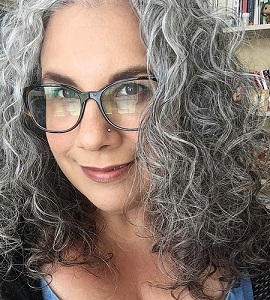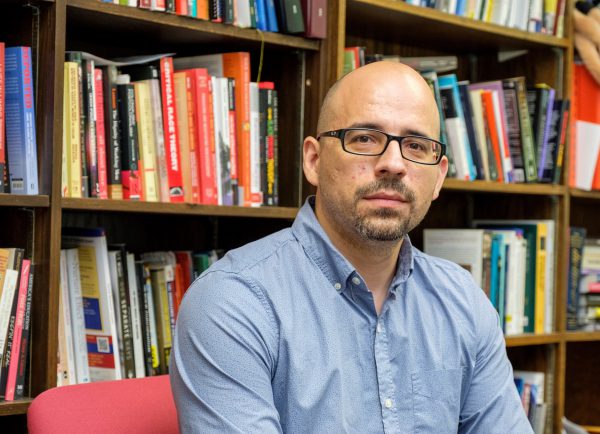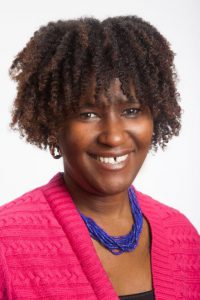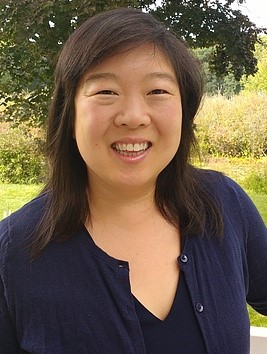
A major grant from the Andrew W. Mellon Foundation will provide new learning opportunities for Kalamazoo College students and faculty seeking solutions to societal problems and promote the critical role of the humanities in social justice work.
The $1.297 million three-year grant will provide funding for the College’s Humanities Integrated Locational Learning (HILL) project, which is building student coursework rooted in K’s commitment to experiential learning and social justice to address issues such as racism, border policing, economic inequities, homelessness and global warming, while examining history, how humans share land, and the dislocations that bring people to a communal space.
The project was envisioned by Associate Professor of English Shanna Salinas (Co-PI), Arcus Center for Social Justice Leadership Assistant Professor of Sociology Francisco Villegas (Co-PI) and Professor of English Bruce Mills. HILL will invite K faculty to build curricula that foreground how power structures produce destabilizing dynamics and the collective response(s) of affected communities through the development of course materials, collaborative faculty-student research and community engagement, the development of program assessments and the sharing of oral histories tied to partnering projects and organizations.

Sociology Francisco Villegas
Each class within the curriculum will fit into one of two cluster programs: the first focuses on hubs outside of Kalamazoo such as New Orleans, St. Louis and San Diego; the second looks within Kalamazoo with themes relevant to the city such as prison reform and abolition, and migrants and refugees. Both cluster programs will contribute to a digital humanities initiative for publishing, archiving and assessing coursework and partnerships. Each will provide opportunities for immersing students in local heritage, cultures, landscapes, opportunities and experiences.
Salinas and Villegas will co-direct the HILL initiative. The three sites outside Kalamazoo—New Orleans, St. Louis and San Diego—were chosen for their current or historical dispersion of people from their homeland, as well as dislocated communities with strong histories of social justice movements. About 15 to 20 students at a time will go to those cities to further their experiential learning. Salinas added that faculty and students will first put in research and legwork related to their collaborative partnerships with a year of concentrated work. Then, by about December 2022, they will be ready to conduct in-person learning, first in New Orleans.

In addition to co-directing the project, Salinas will also serve as the curriculum coordinator for New Orleans. “We hope that students will develop an understanding of place as a living entity with a storied history and people who are a part of that location,” Salinas said. “We want students to learn what it means to be a part of a particular place. We want them to contend with histories, and meet the residents and people who inhabit the spaces we study with a real sense of generosity and purpose. We want to change students’ understanding about how they approach space and operate within it.”
Villegas plans to build on his strong connections within Kalamazoo County in leading the cluster focused on issues inside Kalamazoo. As a member of an exploratory taskforce (and now advisory board chair), he helped Kalamazoo County launch a community ID program in 2018, allowing residents, including those otherwise unable to get a state ID, to obtain a county ID.
“I think the grant speaks to the Mellon Foundation seeing promise in the kind of work we are imagining,” Villegas said. “It’s encouraging that they are willing to invest so greatly in such a project. They’re also recognizing the ethics of the project. They’re trusting that we’re going to engage with cities, including our home city, with a sense of respect and with a recognition of furthering community agendas already in place rather than imposing our understandings to other spaces. Most importantly, we’re invested in thinking about how students can consider the humanities in these projects as a way of producing nuanced understandings toward addressing very big problems.”
Mills will lead the digital humanities portion of the initiative. He noted that one measure of success for participating faculty will be how HILL shows the enduring dimensions of its partnerships with the digital project playing a large role.
“When you create classes, writing projects, oral histories or collaborate on community projects, these efforts often get lost when they just go into a file or a paper or are not passed along in local memory,” Mills said. “The digital humanities hub is an essential part of this initiative because faculty, students and city partners will have a site for a collective work to be published or presented. Community members will have access to it. That means the work being done will not disappear.”

Beau Bothwell

Anthropology and Sociology
Espelencia Baptiste

Christine Hahn
In addition to Salinas, Villegas and Mills, Associate Professor of Music Beau Bothwell and Professor of Art and Art History Christine Hahn will be curriculum coordinators for St. Louis and San Diego respectively. The first four courses that will be offered in the HILL project are Advanced Literary Studies (Salinas, English); Missionaries to Pilgrims: Diasporic Returns (Associate Professor Espelencia Baptiste, Anthropology and Sociology); The World Through New Orleans (Bothwell, Music); and Architecture Urbanism Identity (Hahn, Art and Art History).
The Mellon Foundation’s grant to K is one of 12 being issued to liberal arts colleges as a part of the organization’s Humanities for All Times initiative, which was created to support curriculum that demonstrates real-world applications to social justice pursuits and objectives.
“Kalamazoo College’s commitment to social justice is most profoundly realized through students’ opportunities to connect the theoretical with hands-on work happening in our communities,” Kalamazoo College President Jorge G. Gonzalez said. “We’re grateful for the Mellon Foundation’s generous support, which will enable us to build on our foundation of experiential education and demonstrate to our students how the humanities have a practical role in fostering positive social change.”
The Mellon Foundation notes that humanities thought and scholarship efforts influence developments in the social world. However, there’s been a sharp decline in undergraduate humanities study and degree recipients nationwide over the past decade despite students’ marked interest in social justice issues. The initiative targets higher student participation in the humanities and social justice while building their skills in diagnosing cultural conditions that impede a just and equitable society.
“The Humanities for All Times initiative underscores that it’s not only critical to show students that the humanities improve the quality of their everyday lives, but also that they are a crucial tool in efforts to bring about meaningful progressive change in the world,” said Phillip Brian Harper, the Mellon Foundation’s higher learning program director. “We are thrilled to support this work at liberal arts colleges across the country. Given their unequivocal commitment to humanities-based knowledge, and their close ties to the local communities in which such knowledge can be put to immediate productive use, we know that these schools are perfectly positioned to take on this important work.”
